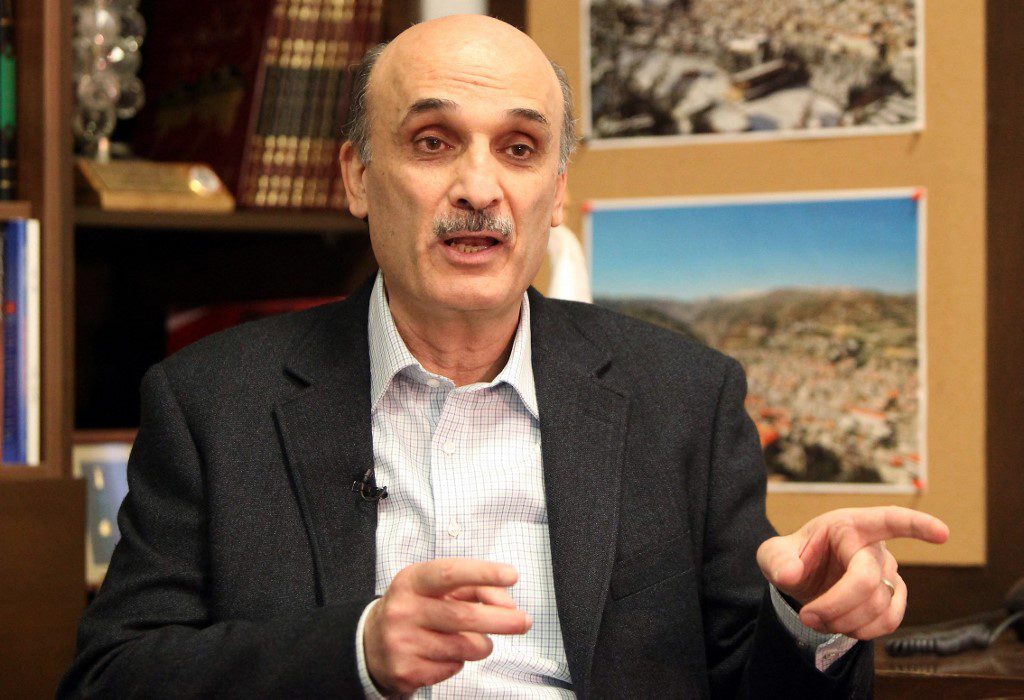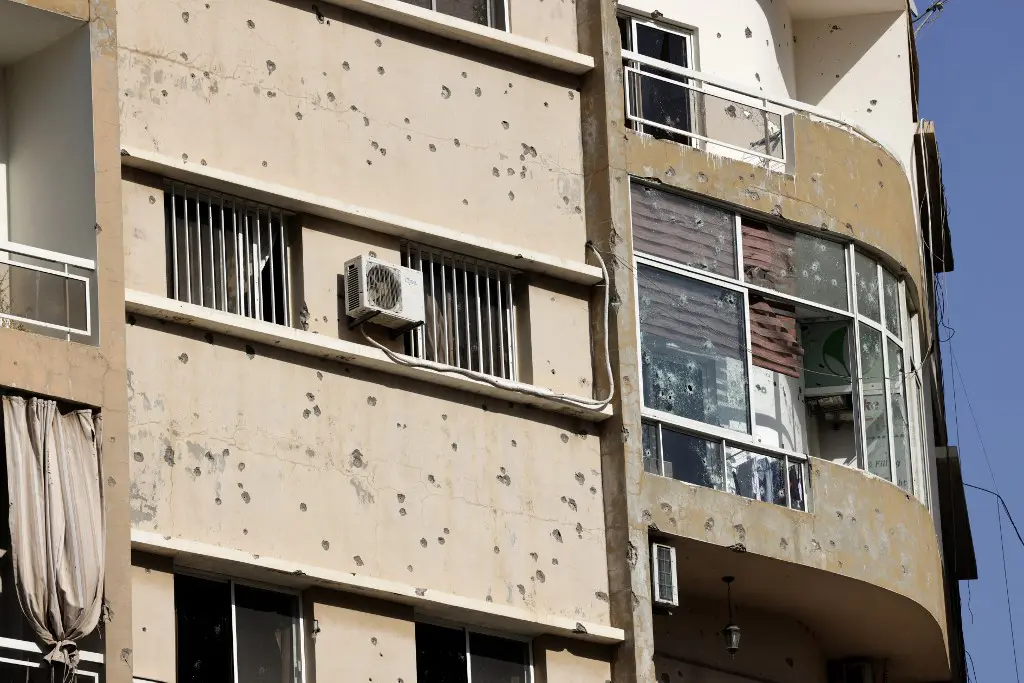
Simply and plainly, one case is replaced by another in Lebanon. Therefore, a new case, at the very least, ensures postponing the decision on the main one. It also guarantees to the parties benefiting from this postponement more political manipulation and new entanglements based on the alternative issue, if you will.
The main case, which was hidden behind another, is the special tribunal for the bombing of the port. Judge Tarek Bitar, who is in charge of investigating the case of the bombing, directed a subpoena to former officials, including ministers Nohad Machnouk and Ghazi Zuaiter. This prompted the Shiite duo (Amal and Hezbollah) to turn against him and led them and their followers to demand removing him from the investigation.
During the last two weeks of October 2021, summoning officials to court was no longer the pressing issue. Instead, there was a new court investigating the events of what was called the “Bloody Thursday”. That day, clashes occurred in the Tayyouneh neighbourhood. During these clashes, the Lebanese Forces Party and its supporters were accused of attacking demonstrators from Hezbollah and the Amal movement, calling to remove the examining magistrate, Bitar.
The new court summoned Samir Geagea, the leader of the Lebanese Forces Party, to investigate the events. However, he did not respond to that call, which in turn became an urgent issue, to the point where there was a talk of dismissing the judge in the Tayyouneh events.
This scenario seemed to be as if the exact details were repeated, but in reverse, so that an entirely new case was created, in which all the parties involved in the old case were present: a judge, an accused, and the public calling for the judge to be dismissed, and another demanding summoning those wanted to testify, no matter how high their political rank is.
But the roles here have been reversed, as the defendant has become a plaintiff, and the one requested to question those suspected of involvement has become a suspect in the alleged involvement.
According to the statements that were issued by the Lebanese Army, it is assumed that the investigation into the Tayyouneh events was closed after Judge Fadi Akiki indicted 68 people for murder, attempted murder and inciting sectarian strife. But the presence of the case in the internal political scene and the media is still dominant, and so is Geagea.
It appears that the whole case aims to brand the party and its leader with aggressive behaviour, to accuse it of committing a crime against civilians, and to defile the judicial record of a party, against which no illegal actions have been recorded since the Lebanese Civil War ended, after which Geagea was imprisoned for 11 years (1994-2005), only to be released with a parliamentary consensus.
The events of Tayyouneh had passed, and Lebanese parties reaped many gains from the outcome, mainly Hezbollah, as those very same recent events made them look like the victim, a role that the party rarely plays.
However, this time, an event backed its narrative, which justified a speech closer to a declaration of war, attacking its enemies inside, particularly the Lebanese Forces, accusing them of treason, and expressing their strength and military readiness for any confrontation, which would translate into a civil war. Of course, the main gain is entangling the Lebanese Forces Party and its leader in a court case, accusing them of causing a military clash and civilian casualties among the supporters of the “resistance” that Hezbollah claims to represent in Lebanon.
Samir Geagea stands to the left of conspicuous alliances in the Lebanese political scene, firmly reluctant to form any political agenda with Hezbollah, insisting that it is an anomaly in Lebanon being an armed party, uncompromising when it comes to confiscating these weapons, which were previously seized from other Lebanese parties after the war ended. Yet, Hezbollah kept his arsenal as a necessary asset to fight against Israel in the south of Lebanon, one of the Taif Agreement controversies that ended the Civil War.
Today, Hezbollah is accused of controlling Lebanon and all aspects of its political and economic life by possessing this weapon.
The Lebanese Forces party, led by Geagea, took a completely different stance from all those of the Lebanese political parties, which can be described as traditional, continuing to craft internal policies in Lebanon since the end of the Civil War. He saw that the new Lebanese government, as long as it is formed in the same circumstances, will be nothing but a half-measure that plays on the factor of time and nothing more, and it continues to discuss the consequences of problems without going deep into trying to solve them. This stance morphed into a more practical form with the party abstaining from its participation in the new Cabinet formation, contrary to all Lebanese factions playing a role and sharing ministerial portfolios.

Geagea did not want to submit to Hezbollah’s authority over the new government. It is clear to him that the party’s alliance with a group of other parties will facilitate consolidating its power in drafting foreign policies and determining the country’s fate. Geagea preferred to take the position of a critical spectator, which is viewed as passive, preferring what is more comfortable in a sensitive period.
Contrarily, many consider this position a strong position and a final stronghold to the entire country’s adoption of Hezbollah’s behaviour and its alliance with Iran while severing its relations with all its numerous enemies in the Arab and Western worlds.
After forming the government, and the impact of the statements of its former Minister of Information, George Kordahi, which implied that Lebanon was on the verge of Arab isolation, Geagea’s position became more present and influential in the street since the first result of forming the government was causing a new problem and making matters worse.
It also bolstered Geagea’s supporters’ trust in him, making it more complicated for Hezbollah to tighten its grip around the country’s neck. It also makes Geagea a bigger foe now more than ever before, in a way that prompts for military threats – a fact known to any follower of the Lebanese matter – which somehow does not play in Hezbollah’s favour Internally.
It reinforces the notion of military dominance that forces everyone to submit. In other words, it reveals what Hezbollah is constantly trying to conceal through his Secretary General Sayyed Hassan Nasrallah’s speeches, which always imply that Hezbollah is just another political party that has its merits and demerits, that it is not the final decision-maker in the country, and that its weapons are pointed only toward the outside.
Given the conflict escalation, it is plausible that Geagea is playing a relatively different role since he corners Hezbollah to the degree that pressures it to pursue its agenda openly. He furtherly exposes the traditional Lebanese politicians, despite being one of them. In return, they keep repeating the same “espionage and treachery” accusations; terms that have been devoid of any meaning in Lebanon since these parties’ affiliations, orientations, and contributions to the current deteriorated state have been exposed by the groups that have been shouting “all of them means all of them” for years.
Recently, Geagea defended the special tribunal for the port explosion and demanded the summons of the requested politicians, as the majority of the Lebanese want. They consider the judicial authority the final wall preventing a total collapse. Many bet that it can still influence and preserve the integrity of this crumbling country, which also plays in Geagea’s favour at the popular level, and exacerbates the dispute with the rest of the parties calling to remove the judge who requested to question the politicians.
Geagea, who stands differently today from the rest of the political figures who fought the war then shared power in Lebanon, according to the Taif Agreement, in the eyes of the Lebanese, is a military war general whose hands were dirtied with blood during the Civil War. A war criminal among a large part of the Lebanese, but he is also the only politician who was punished for his crimes at the time when everyone else shared the devastated country among themselves after their guns wreaked havoc in its streets.
Since his release, Geagea refused to align himself with the strongest alliance in Lebanon since the Civil War. When other movements changed course, the Free Patriotic Movement headed by now President Michel Aoun; the Future Movement led by former Prime Minister Saad Hariri, or the Progressive Socialist Party headed by former MP Walid Joumblatt, Geagea’s Lebanese Forces utterly refused siding with the strongest.
A position that is more than just a mere ineffective political stance, as Lebanon, by all indications, is headed towards extreme poverty and chaos, one that is caused – as the majority of the Lebanese believe – by none other than yesterday’s leaders. And since Geagea is standing in their way, there are no guarantees he won’t get a taste of their guns.


